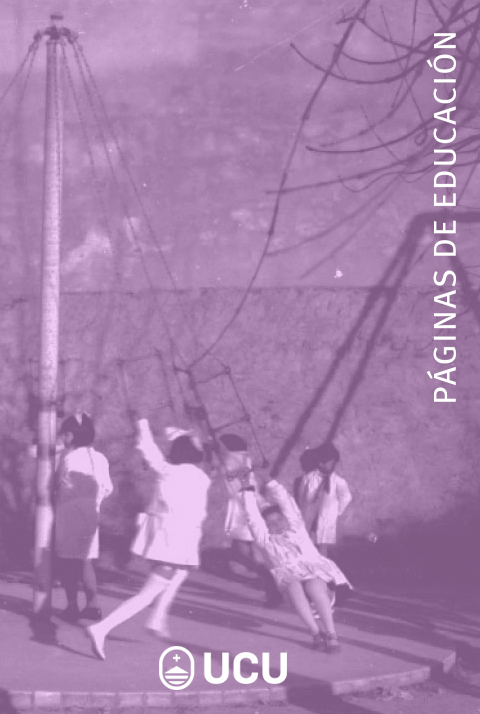From Feedback to Feedforward: Promoting Reflection, Engagement, and Sustainable Use of Feedback Among Pre-Service Teachers
DOI:
https://doi.org/10.22235/pe.v18i1.4454Keywords:
formative evaluation, participatory feedback, teacher education, feedback strategiesAbstract
In the context of formative assessment, feedback plays a pivotal role in fostering critical reflection on performance and enhancing student learning in higher education. However, engaging students meaningfully in feedback processes remains a persistent challenge. This single-case study aimed to implement participatory and collaborative feedback strategies that actively involve students in critical reflection and performance improvement, contributing to the development of formative assessment expertise among future teachers. Two instruments were employed: a reflective questionnaire on the feedback received and a semi-structured mixed-methods questionnaire to gather students’ perceptions. The findings indicate that students value feedback more highly when it encourages critical reflection and is delivered through constructive and respectful communication that preserves their self-image. Additionally, students highlighted the positive impact of oral feedback in audio format, citing its proximity, clarity, and constructive tone. Nevertheless, challenges were identified, particularly the need to work more systematically with students on crafting specific and constructive comments when providing peer feedback.
Downloads
References
Andújar Moreno, G., & Cañada Pujols, M. D. (2021). Modalidades de retroalimentación correctiva escrita: Estudio exploratorio de prácticas docentes en el aula de traducción. redit - Revista Electrónica de Didáctica de la Traducción y la Interpretación, 1(14), 50-72. https://doi.org/10.24310/REDIT.2020.v1i14.13726
Anijovich, R. (2019). Retroalimentación formativa: Orientaciones para la formación docente y el trabajo en el aula (2.ª ed.). La Caixa.
Carless, D. (2022). From teacher transmission of information to student feedback literacy: Activating the learner role in feedback processes. Active Learning in Higher Education, 23(2), 143-153. https://doi.org/10.1177/1469787420945845
Carless, D., & Boud, D. (2018). The development of student feedback literacy: Enabling uptake of feedback. Assessment & Evaluation in Higher Education, 43(8), 1315-1325. https://doi.org/10.1080/02602938.2018.1463354
Contreras Pérez, G., & Zúñiga González, C. G. (2018). Concepciones sobre retroalimentación del aprendizaje: Evidencias desde la Evaluación Docente en Chile. Actualidades Investigativas en Educación, 18(3), 1-25. https://doi.org/10.15517/aie.v18i3.34327
Hattie, J., & Clarke, S. (2018). Visible Learning: Feedback (1.a ed.). Routledge. https://doi.org/10.4324/9780429485480
Hattie, J., & Timperley, H. (2007). The Power of Feedback. Review of Educational Research, 77(1), 81-112. https://doi.org/10.3102/003465430298487
Hernández Rivero, V. M., Santana Bonilla, P. J., & Sosa Alonso, J. J. (2021). Feedback y autorregulación del aprendizaje en educación superior. Revista de Investigación Educativa, 39(1), 227-248. https://doi.org/10.6018/rie.423341
Jaramillo, D. M. P., Ramírez, X. M. B., Cochea, N. G. O., Brusil, B. A. Z., & Vélez, W. A. Z. (2023). La retroalimentación docente en la evaluación del aprendizaje. South Florida Journal of Development, 4(9), 3457-3474. https://doi.org/10.46932/sfjdv4n9-009
Lorente, E., & Kirk, D. (2012). Alternative Democratic Assessment in PETE: An Action-research Study Exploring Risks, Challenges and Solutions. Sport, Education and Society, 18(1), 77-96. https://doi.org/10.1080/13573322.2012.713859
Paterson, C., Paterson, N., Jackson, W., & Work, F. (2020). What are students’ needs and preferences for academic feedback in higher education? A systematic review. Nurse Education Today, 85(1), 104236. https://doi.org/10.1016/j.nedt.2019.104236
Quinton, S., & Smallbone, T. (2010). Feeding forward: Using feedback to promote student reflection and learning – a teaching model. Innovations in Education and Teaching International, 47(1), 125-135. https://doi.org/10.1080/14703290903525911
Reimann, N., Sadler, I., & Sambell, K. (2019). What’s in a word? Practices associated with ‘feedforward’ in higher education. Assessment & Evaluation in Higher Education, 44(8), 1279-1290. https://doi.org/10.1080/02602938.2019.1600655
Sánchez, G. I., Jara, X. E., & Verdugo, F. A. (2023). Retroalimentación en docencia universitaria online: Formas, funciones y condicionantes. Formación Universitaria, 16(3), 21-30. https://doi.org/10.4067/s0718-50062023000300021
Vega-Angulo, H. E., Rozo-García, H., & Dávila-Gilede, J. (2021). Estrategias de evaluación mediadas por las tecnologías de la información y comunicación (TIC): Una revisión de bibliografía. Revista Electrónica Educare, 25(2), 1-22. https://doi.org/10.15359/ree.25-2.16
Villarroel, V., Pérez, C., Rojas-Barahona, C. A., & García, R. (2021). Educación remota en contexto de pandemia: Caracterización del proceso educativo en las universidades chilenas. Formación Universitaria, 14(6), 65-76. https://doi.org/10.4067/S0718-50062021000600065
Published
How to Cite
Issue
Section
License
Copyright (c) 2025 Páginas de Educación

This work is licensed under a Creative Commons Attribution 4.0 International License.















